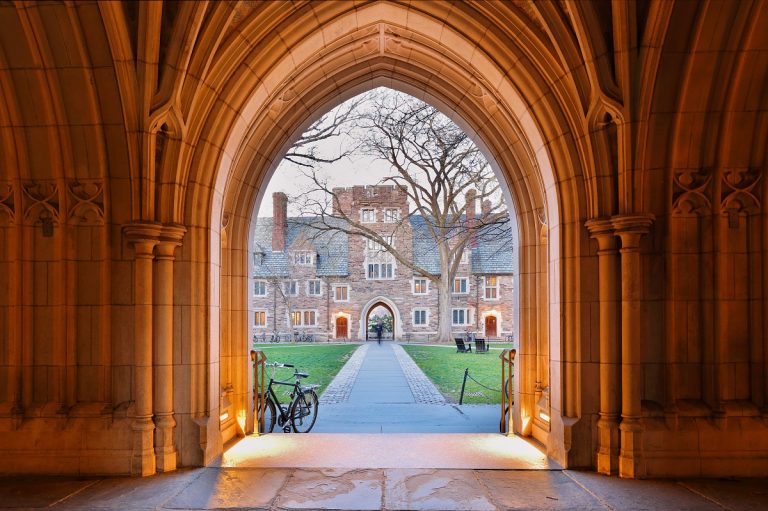How to Get Accepted into Oxford as a U.S. Student: The Ultimate Guide
Oxford university was founded in the year 1096 and is located in Oxford, England. The university is made up of 38 colleges and six permanent private halls. There are around 22,000 students enrolled at the university, with approximately 60% of those being undergraduates.
It’s one of the most prestigious universities in the world, and it’s also one of the hardest to get into – especially if you’re a U.S. student. Spots for international students are limited, and the application process is extremely competitive.
If you’re a U.S. student who dreams of studying at Oxford, this is the blog post for you! In this article, we will discuss the process of applying to Oxford as a U.S. citizen and provide tips that will help you maximize your chances of being accepted. So whether you’re just starting to think about applying or you’re in the final stages of completing your application, read on for advice that will help you reach your goal!
What You Need Before Applying
Oxford is a demanding university. They only want the best of the best. They are looking for students who have demonstrated excellence in both their academics and extracurriculars.
You will need to have a strong academic record. Your high school GPA should be as close to perfect as possible. You should also take the most challenging classes offered at your school. If you’re taking AP or IB courses, make sure you get high marks on the exams.
It’s also important to have a well-rounded profile. Oxford wants to see that you’re more than just a good student – they want to see that you’re involved in your community, that you have passion and drive, and that you’re invested in your future.
To this end, make sure you have a strong personal statement and list of extracurricular activities. These should highlight your interests, achievements, and goals.
Your application will also need to include a few essays. These are your opportunity to show the admissions committee who you are as a person and why you deserve to be at Oxford.
Finally, you will need letters of recommendation from your teachers. These should attest to your academic excellence and personal character.
With all of this in mind, let’s move on to the application process itself!
The Application Process
Applying to Oxford can feel daunting, since there is so much you must do. We broke the process into a step-by-step guide, so you can focus on preparing an excellent application rather than scrambling for information on the internet.
Check the Admission Requirements for Your Course of Choice
The first step is to make sure you meet the admission requirements for your chosen course. These vary depending on the subject you want to study, so it’s important to do your research.
For example, if you’re interested in studying engineering, you will need to have completed at least four years of mathematics and science by the time you begin your studies at Oxford.
You can find a complete list of admission requirements on the university’s website. See what courses you must complete to become eligible for your course of choice, and enroll in them if you haven’t already.
Start Working on Your Application Early
The earlier you start working on your application, the better. This will give you plenty of time to perfect your essays and get letters of recommendation from your teachers.
It’s a good idea to start thinking about your application at least a year in advance. That way, you won’t have to rush to get everything done at the last minute.
Create a Checklist of Application Requirements
The next step is to create a checklist of all the requirements for your application. This will help you make sure you don’t forget anything important.
Your checklist should include:
- The deadline for submitting your application
- The courses you need to take to be eligible for your chosen course
- Your high school GPA
- Your standardized test scores (SAT, ACT, etc.)
- Your personal statement
- Your essays
- Letters of recommendation from your teachers/mentors
This may seem like a lot, but don’t worry – we’ll discuss each of these requirements in more detail below.
Set a deadline for yourself to complete your checklist, and make sure you stick to it!
Fill Out the UCAS Application Form
UCAS is a non-profit organization that helps students with everything concerning university. They offer counseling and admission services to all students.
UCAS is the centralized application system for all universities in the UK. You will need to create an account and fill out the form, which includes your personal information, academic history, and chosen course of study.
Simply fill out the application form on the UCAS website.
The form itself is not very long, but it will take some time to complete. You will need to provide information about your personal details, education history, and extracurricular activities.
Completing an Admission Test
Every application to Oxford must include a completed admission test. This is to ensure that all students are academically prepared for the rigors of university-level study.
The admission test you must take depends on the course you’re applying for. For example, if you’re applying for Computer Science, then you must take the MAT (Mathematics Admission Test), whereas for Fine Arts, you must take the Fine Arts Practical.
Additional Forms
This only applies if you’re looking for a second postgraduate degree, and it’s a transcript of your first degree.
You will also need to submit your transcripts, test scores, and letters of recommendation at this time.
Writing a UCAS Application that Gets You an Interview
The UCAS application is easily the most important part of your application to Oxford. This is because it’s your only opportunity to sell yourself to the university.
You need to make sure that your UCAS application is well-written and free of any errors. Here are some tips:
- Be clear and concise: Don’t try to cram too much information into your UCAS application. Stick to the facts and be as clear and concise as possible.
- Sell yourself: This is your chance to sell yourself to the university. Make sure you highlight your best qualities and accomplishments. Don’t embellish the facts, but be honest about your motives. More on this later.
- Proofread: Be sure to proofread your UCAS application before you submit it. Nothing will ruin your chances of getting an interview more than a spelling or grammar error.
Your personal statement and references are what will make your application stand out, so make them as polished as possible.
Writing an Enticing Personal Statement
Your personal statement is your chance to make the university interested in you. This is where you can really show off your personality and give the admissions committee a sense of who you are.
Be sure to include:
- Your motivation for wanting to study at Oxford—Why Oxford specifically, instead of a university closer to you?
- Your passion for your chosen subject—Include a story of how you discovered your passion. As humans, we connect best with stories, so make it as detailed and vivid as possible.
- Your long-term goals—don’t just say “My dream is to be X”. Explain why you want to become X, what propelled you to do so, and how it intertwines with your passions.
- Any relevant experience or extracurricular activities—particularly in the field of study you want to undertake.
Weave in your personal achievements with your interest in getting into the university. Show that you care about your future and that you’re willing to work hard to achieve your goals.
Here is additional advice from UCAS’ website.
Getting Great Letters of Recommendation
Your letters of recommendation are just as important as your personal statement. These are the people who can speak to your character and abilities, so choose them carefully.
Your teachers and mentors are the best people to ask for letters of recommendation. They can speak to your academic achievements and personal qualities.
When asking for a letter of recommendation, be sure to give the person plenty of time to write it. A rushed letter will not be as strong as one that is well-thought-out.
After the Application
Once you have submitted your application, it will be reviewed by a committee of admissions tutors. If they decide that you are a good fit for the university, you will be invited to interview.
The interview is another key part of the application process. This is your chance to make a personal connection with the admissions committee and demonstrate why you deserve to be at Oxford.
Prepare for your interview by practicing your answers to common questions. You should also be ready to discuss your extracurricular activities and personal statement in detail.
The interview is your chance to make a good impression and demonstrate why you’re a great fit for the university.
Acing the Interview
If you’re invited to an interview, congratulations! This means that the admissions committee is interested in you and wants to learn more about you.
Remember – the interviewers are also likely to be your future tutors. They are assessing your suitability not only for the course but also for life at Oxford. Basically, how you conduct yourself not only as an academic, but also as a citizen of the world. Being a great student is only part of what makes you qualified for Oxford.
Once you’ve gotten your invitation to interview, it’s time to prepare for it.
Start by reading over your application and personal statement. The interviewers will most likely ask you about the experiences and achievements you mentioned in your application, so be prepared to discuss them in detail.
It’s also a good idea to brush up on current affairs and news stories that relate to your course of study. Be prepared to discuss why these stories interest you and how they relate to your studies.
The first few questions you’ll be asked are simple to get you at ease with the tutors. They’ll most likely be about your personal statement or your course of choice. Once the first few awkward moments have passed, you’ll get asked more relevant questions about the course.
So, for example, if you’re looking to get into a liberal arts course, you could be given a poem or a small excerpt to comment. Whereas if you’re trying to get into computer science you might be asked to create a small function or comment on a piece of code.
One thing to keep in mind is that tutors are more interested in your thought process than in raw knowledge. It is extremely likely they’ll ask you a question whose answer you don’t know. Don’t get worked up when that happens. Recollect your thoughts and explain how you’d proceed to get to the answer. Knowledge is the continued search for truth after all. You can’t expect all truths to just be revealed to you willy-nilly.
Editor’s note: it’s common for students to go through more than one interview. Don’t panic if you get another one scheduled after your first one, it’s standard practice.
Monetary Concerns
Oxford is ranked #1 university in the world, so surely you’d expect it to be expensive. Well, yes and no.
It’s no secret that attending Oxford is a costly endeavor. As an international student, you’ll be required to pay tuition fees as well as living expenses.
The good news is that there are many ways to finance your studies at Oxford. You can apply for scholarships, take out loans, or look into other forms of financial aid.
And, studying here is still way cheaper than attending an equivalent top U.S. university such as Stanford or Harvard. As per the linked CNN article:
Students from the rest of the world pay anywhere between 15,295 pounds ($19,860) and 22,515 pounds ($29,230) a year.
The first step is to research the different options available to you. There are many scholarships and bursaries that can help offset the cost of tuition, so be sure to look into those. You should also consider taking out a student loan, which you can use to cover living expenses.
Once you have a plan in place, it’s time to start saving up. You’ll need to have a solid financial foundation in order to attend Oxford. So start looking for scholarships, bursaries, and other forms of financial aid. And begin setting aside money each month to help pay for your studies.
Conclusions
So, if you’re interested in attending Oxford, start preparing now. Pick your course, check the requirements, and begin working towards them. Be sure to also research the different financing options available to you.
Oxford is an elite university, and as such they only accept elite students. But being an A-grade student isn’t enough, it’s only the starting point. You’ll need to be well-rounded, with a strong personal statement and extra-curricular activities.
You should also be prepared for your interviews. Be ready to discuss your experiences, achievements, and interests in detail. And brush up on current affairs that relate to your course of study.
If you can do all of this, then you’ll be well on your way to getting accepted into Oxford. Good luck!







